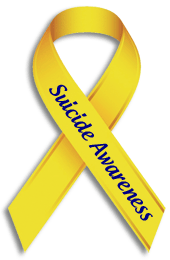National Suicide Prevention Month
Sep 17, 2013 by Victoria Noe, in baby boomers
, Friend Grief
, Grief
, military
, National Suicide Awareness Month
, Stop Soldier Suicide
, suicide
, veterans
September is National Suicide Prevention Month, and if it seems like suicide is in the news more lately, there’s a reason for it. The numbers (not just awareness) are up and three groups of people seem most at risk: teenagers, military and Baby Boomers.
We’ve known that teenagers are at risk for suicide for a long time. Raging hormones, pressure from parents and school, drugs and alcohol make a deadly combination. But a large number of suicides of teenagers – and even pre-teens – can be traced to bullying.
Kids whose only crime is being different or being sensitive or smart or small for their age are hounded by bullies: on the school bus, on the internet, even getting text messages like ‘why aren’t you dead yet?’ Some of the bullies are anonymous; some are kids they know. What they’re doing is reprehensible, but not a crime.
A shocking report found that more active duty military committed suicide than died in action in 2012. In addition, many veterans of Iraq, Afghanistan and Vietnam are victims of the VA’s backlog of cases, unable to get the mental health treatment they’ve earned and deserve. Suicides have been steadily rising for years, and not just in the US. Military officials in the UK and Israel have reported similar findings.
But, Baby Boomers? Not the group you might imagine turning to suicide. But information is starting to come out that this is a fast-rising risk group. Some are veterans. Some are people who have decided that they are unable to face an uncertain old age: depleted savings, poor health, lack of resources.
I’ve been depressed and even in despair. But I’ve never considered suicide as an option. It’s hard to believe that people can see taking their own life as their best option, but many do. Not all are successful, but those are the ones we hear about.
There are groups devoted to helping people climb out of their despair and keep living. I’ve listed a couple here.
The important thing is to reach out to any friend you may believe is at risk. Talk to them, but more importantly, listen. Do what you can and help them find the support they need.
That’s what friends are for.


